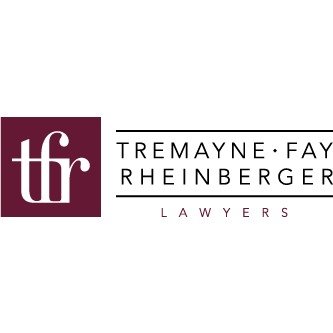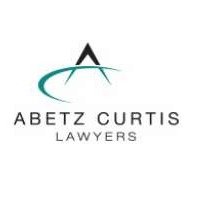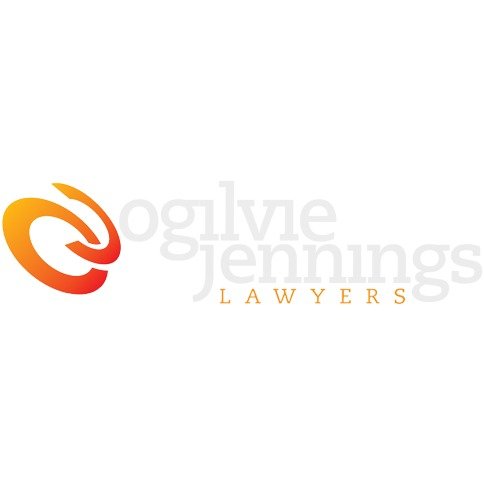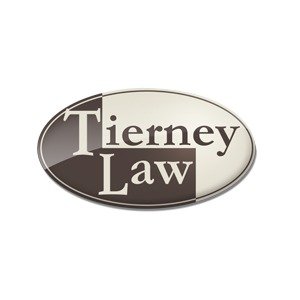Best Work Injury Lawyers in Hobart
Share your needs with us, get contacted by law firms.
Free. Takes 2 min.
List of the best lawyers in Hobart, Australia
About Work Injury Law in Hobart, Australia
Work Injury Law, also known as Workplace Injury or Compensation Law, covers rights of employees who get injured at work in Hobart, Tasmania. By law, all employers in Hobart should have workers' compensation insurance covering medical expenses, rehabilitation costs and lost wages. The Workers Rehabilitation and Compensation Act 1988 is the main legislation which governs the rights and responsibilities of employers and workers in relation to workplace injury and disease.
Why You May Need a Lawyer
You may need a lawyer to assist you in navigating through the complexities of Work Injury Law, such as when filing for workers' compensation claims, if your claim has been denied or dispute arises regarding the benefits. Issues like degree of disability, pre-existing conditions, or if the injury was work-related may require legal aid. In cases when the work injury resulted due to negligence of the employer, a lawyer can help you file a lawsuit seeking further compensation.
Local Laws Overview
The Workers Rehabilitation and Compensation Act 1988 states that employers must provide details of any workplace injuries to the WorkCover Tasmania Board within five days of being notified. It is the responsibility of the injured worker to notify the employer of the injury. Workers have the right to receive benefits, regardless of who was at fault, for injuries sustained in doing their job. If a worker is unsatisfied with the insurer's decision, they can request for a review by the Workers' Compensation Tribunal.
Frequently Asked Questions
1. What kinds of injuries are covered under Work Injury Law?
Any injury or illness that has occurred during or due to work is generally covered. This includes sudden accidents, diseases caused by work, injuries sustained while travelling for work, or pre-existing conditions worsened by work.
2. Can I sue my employer for a workplace injury?
You may only sue an employer for serious negligent behaviour if they breached their duty of care and that caused your injury. This process is separate from a workers' compensation claim.
3. Can I make a claim if I caused my work injury?
Yes, the worker's compensation scheme in Hobart, TAS operates on a no-fault basis, meaning you typically can claim even if you were responsible for your injury.
4. How long do I have to make a workers' compensation claim?
Under the Workers Rehabilitation and Compensation Act 1988, you should notify your employer as soon as possible but not longer than three months after your injury occurred.
5. Can my employer fire me if I filed a workers' compensation claim?
No. It is illegal for an employer to discriminate or dismiss an employee for filing a workers' compensation claim.
Additional Resources
WorkSafe Tasmania offers resources and details on workplace health and safety standards, workers' rights and responsibilities. The Workers’ Compensation Tribunal provides mediation services and hears disputes about workers' compensation claims.
Next Steps
If you believe you have a work injury claim, seek medical attention immediately. Notify your employer of the injury in writing as soon as possible. You may seek legal advice about making a workers' compensation claim or if your employer disputes your claim. Make sure to keep a record of everything related to your injury including medical records and expenses, time off work and any correspondence with your employer or their insurer.
Lawzana helps you find the best lawyers and law firms in Hobart through a curated and pre-screened list of qualified legal professionals. Our platform offers rankings and detailed profiles of attorneys and law firms, allowing you to compare based on practice areas, including Work Injury, experience, and client feedback.
Each profile includes a description of the firm's areas of practice, client reviews, team members and partners, year of establishment, spoken languages, office locations, contact information, social media presence, and any published articles or resources. Most firms on our platform speak English and are experienced in both local and international legal matters.
Get a quote from top-rated law firms in Hobart, Australia — quickly, securely, and without unnecessary hassle.
Disclaimer:
The information provided on this page is for general informational purposes only and does not constitute legal advice. While we strive to ensure the accuracy and relevance of the content, legal information may change over time, and interpretations of the law can vary. You should always consult with a qualified legal professional for advice specific to your situation.
We disclaim all liability for actions taken or not taken based on the content of this page. If you believe any information is incorrect or outdated, please contact us, and we will review and update it where appropriate.














